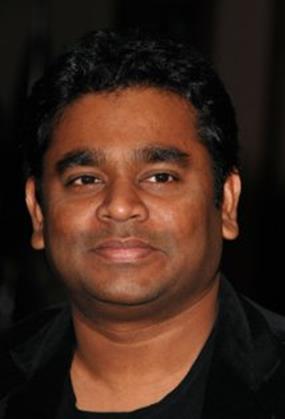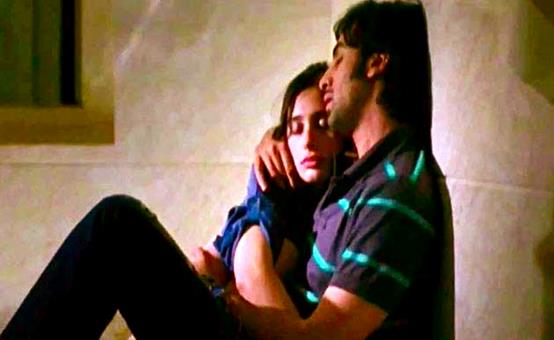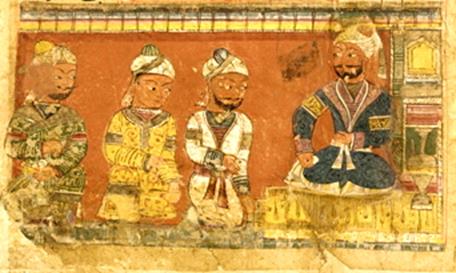
‘ROCKSTAR’ as a tale of Sufi Wisdom: Imtiaz Ali, Rumi, AR Rahman & Irshad Kamil
Oh innocent bird, come home!
No matter how much you cut the air with your wings, you’ll never be able to
escape yourself. Break the skies! Burn the world! You won’t be able to hide
yourself. Take any path. You reside in you. You’ll come back to your own Home.
Oh innocent bird…
- O NADAAN PARINDE lyrics inspired and sung by AR Rahman
The 2011 Hindi film ‘Rockstar’ can be interpreted as a love story woven with
Sufi wisdom. I have found no evidence that the director & writer Imtiaz Ali is a
Sufi, however in the film he uses verses from the Sufi master Rumi and an
ongoing friendship with the Sufi AR Rahman indicates a shared respect and
affinity. The Indian Hindi/Urdu poet Irshad Kamil wrote the lyrics to Rahman’s
compositions and has created unique fresh poetic images suffused in subtle
hidden layers of Sufi metaphors.
The mystic will always perceive the world as a reflection of the Oneness
pervading and permeating the All, thus romantic love is symbolic of our love for
God. Tales of great profound and often deeply tragic love are understood as the
seasons of the mystic’s relationship with the invisible One. Like Mani Ratnam’s
film ‘DIL SE’, the hidden devotional aspect of our mysterious illusive
relationship with the God-within is what makes ‘Rockstar’ compelling, mystical
and ultimately classic.
Initially I watched this film because AR Rahman composed the music. However I
began to notice how Imtiaz Ali chose to discreetly weave Rumi's Sufi influence
throughout the film, especially in AR Rahman's music. In my copy of the ‘Rockstar’
CD there is an illustrated insert with the song lyrics in Hindi. On the back
page Imtiaz Ali writes Rumi, ‘whose words gave us new direction at every corner’
and quotes the Sufi master thus:
Sometimes you hear a voice through the door calling you,
As fish out of water hears the sound of the waves
Or a hunting falcon hears the drums
Come back, come back.
This turning towards what you deeply love saves you.
Read the book of your life which has been given to you.
A voice comes to your Soul saying –
Lift your foot, cross over.
Move into Emptiness of question
and answer and question.
Imtiaz Ali says again in the CD insert, revealing the level of inspiration he
felt: “The film wanted to get itself made. It decided when it wanted to get
made, how it wanted to get made and by who. I decided to never get in its way.
Because I always knew that this film was bigger than me.” This is the sign of
true from-the-heart creativity.
“Everything I wish to say is ruined by my words.”
– From the Rahman song JO BHI MAIN.
Sounds Taoist, does it not?
The film ‘Rockstar’ begins with our hero Jordan, played by Ranbir Kapoor, as a
mildly inert insensitive fellow who knows little of the journey into suffering
he will eventually be driven to, but who nevertheless practices his guitar music
with single-minded devotion. Jordan, who has been described by others as a bull
of a young man, wants to be a rockstar. His older friend mentor tells Jordan
that great music comes from only a broken heart. Aware that there has been
little emotional pain in his life, Jordan decides to experience rejection in
love and quite stupidly bluntly publicly declares his love for the prettiest
‘hot’ girl in his school, who is named Heer after the heroine in popular tragic
romance poetry. Heer is socially above him, and completely rejects and
humiliates him. However, this brutal rejection is not enough to affect his
appetite for fried samosas — and we understand that his thick skin
insensitivities will require the application of further assaults.
It is the girl’s reaction to Jordan’s sudden inappropriate crass declarations of
love that shows her affinity with her absurd suitor. Her response is not at all
ladylike, neat & clean refined and in a surprisingly belligerent anger Heer
rudely tells him to “bugger off”! So we sense in her a resonance with Jordan’s
own crude primal nature. Girls with aggressive successful fathers often share
these warrior traits and underneath Heer’s rich-girl veneer lies something akin
to Jordan’s wild nature. They are alike.
Eventually Jordan and Heer form a secret bond. Innocently they do what they call
“cheap” things together, see dirty movies, drink cheap whiskey, and other silly
harmless pranks that give her a sense of freedom, because Heer is to be married
soon and whatever freedom she has known as a young single girl will vanish in
the protected walled worlds of wealth and marriage. She will be the Lady, neat &
clean — no more “cheap” spontaneous expressions of her wild youth. For his part,
Jordan appears willing to do anything for this girl who is far beyond his reach.
His love is one of modesty, servitude and sacrifice, knowing he can never have
her. Just before the wedding in Kashmir, Heer asks him to hug her. For a brief
moment the embrace registers pain for both and then abruptly, she leaves him
alone and hurt.
With Heer married, Jordan returns to India to fulfill his ambition to become a
rock star and gets kicked out of his parent’s house. Homeless, he takes refuge
in the Delhi dargah shrine of the
Sufi saint
Nizamuddin Auliya
(see WIKI below), where he eats & sleeps with other homeless
men. At the shrine, Jordan plays his guitar and joins in the singing of one of
Rahman’s Sufi qawwali songs KUN FAYA KUN, which means ‘You became’. The lyrics
of the poet Irshad Kamil enrich Rahman’s songs with Sufi wisdom. The song asks
God for release from the small self.
Lyrics KUN FAYA KUN [translation from the subtitles on the DVD]: Move into
emptiness, Painter, “BE” and there was. When even nothing was not, He alone
existed. Who dwells in me, dwells in you. He is the Lord, the Illusion. Do me
this favour, Lord, set me free from myself. Let me see myself, free from myself.
You dwell in me, I dwell in you.
Jordan's inability to conform, to suppress his primal instinctual nature in the
'civilized' world, makes him and his music a magnet for what we have lost. While
singing Sufi qawwali with the others at the shrine, Jordan is spotted by a
famous older legendary shehnai player, who realizes that the young man has been
'touched by God's grace' and later encourages his recording company to promote
Jordan. "He will make you a fortune!" Thus it is misfortune that leads Jordan to
his intended destiny. Just as in our own lives, which often take painful and
unwanted directions, we understand that through suffering what first appear as
wrong turns with unintended consequences, we experience precisely what we need
to learn and find the path that leads to our true Home.

Jordan continues on his rocky road to success, but remains unhappy. He feels as
if 'little bugs' are eating away at him. His concert performances show his raw
ability to express the deep darker hidden feelings of the crowd. As the onstage
rockstar he absorbs their energies, their need to let out all their more
primitive primordial nature. His rage becomes a sort of performance of madness
that lets them channel their unexpressed feelings through him. Much has been
written about this occult exchange of energy between the adoring raging fans at
rock concerts and their idols who funnel and utilize these energies in the show.
This kind of crowd psychology and manipulation are ancient instinctual timeless,
maybe even necessary to youth, as the release of group energies is found in
Dionysian rituals and other similar crowd behaviours throughout history.
Lyrics to SAADDA HAQ: Our right! Why do you choke my habit of living, this world
is enemy, burn them, heart says, heart says to live by the heart, or die…I am
nature too. Why do you teach lessons of truth when you cannot even listen to the
truth…your far, your love, your praise, keep them!
The now married Heer is living Prague as the wealthy lady, but Heer the once
wild youth feels trapped, despondent, bored, and is physically weakening. Both
Jordan and Heer are beginning to understand that they cannot exist apart.
Desperate to be with her, Jordan signs a contract that compromises his artistic
freedom in exchange for a sojourn in Prague. Again our star-crossed lovers spend
time together, which is life sustaining for both. In astrology, Venus and Pluto
in hard aspect, meaning a square or an opposition, describe this kind of
relationship where there is an intense attraction and passion followed by
inevitable doom. Another indication may be Pluto in the 7th House of
partnership and marriage.

Gradually the two grow closer and begin to touch with more than friendly intent.
Heer resists, but Jordan is RAW and says to her — “Magic touch!” Truly their
forbidden touch has become the magic that is overwhelming both of them in an
irresistible cauldron of desire, secrecy and guilt. Imtiaz Ali portrays the heat
of their passion with subtle weak-in-the-knees accuracy. This is the ‘drowning
in the sea of love’ that everyone imagines they want to be in. These feelings of
melting heat, dissolving into one another are precisely the reason why mystics
throughout time have described their union with God as the Beloved in sexual
terms. There is a loss of the sense of separate self as one dissolves into the
larger ecstatic Self. The Rahman song AUR HO sung by Mohit Chauhan and Alma
Ferovic describe their feverish state.
AUR HO lyrics: A statement of my helplessness, squeeze out all desire, break you
in my arms, snatch you, let you go. Let there be more, this noise of breathing,
and burn more, passion burning more. It just doesn’t stop, does not tire, this
storm of breath. Don’t know what burns where…trembling.

Soon Heer can no longer endure the guilt of a 'heated' double life and betrayal
of her husband, who is portrayed as a kind good man. She pushes Jordan away
violently and for two years sinks into illness (aplastic anemia - a disease of
the blood stem cells that reside in the bone marrow).
Her condition becomes so serious that her younger sister finally seeks
out Jordan on tour and asks him to come to Heer’s bedside. Jordan’s intense
devotion and the strength of his primal energies revive the dying Heer. The two
spend gentle happy days together. The ill-fated Heer insists on accompanying
Jordan to his scheduled concert, but his fans and the publicity hounds intrude
on their private world, portraying Heer as the married adulterous lover. Sadly
the two agree to part, but Heer has become pregnant. With her blood disease,
pregnancy is unthinkable and she dies. Jordan goes a bit mad, in anger against
himself knowing his unbridled passion has ultimately killed her.
The Rahman song O NADAAN PARINDE is the most powerful moment in the film. His
beloved Heer is dead and yet Jordan must perform for 1000s of his fans. He is in
a state of extreme agitation, angry with himself, and suffering unimaginable
relentless grief.
O NADAAN PARINDE lyrics inspired and sung by Rahman: Oh innocent bird, come
home! Why do you wander strange lands ravaged and tired like a vagabond day and
night? Oh innocent bird, come Home. One hundred bruises cover your body. Clothes
of all deeds are dirty. No matter how much you cut the air with your wings,
you’ll never be able to escape yourself. Break the skies! Burn the world! You
won’t be able to hide yourself. Take any path. You reside in you. You’ll come
back to your own Home. Oh innocent bird…(Jordan is now burning up the stage with
his grief). Scavenging bird, it’s my small plea, gorge on all my flesh. Don’t
eat my eyes. I hope to see my Beloved.
Jordan longs to see Heer once more and his broken heart despair is eloquently
expressed by Ranbir Kapoor, who acts out and draws us into the terrible anguish
of his agony to the point of madness in an intense performance, which film
critics in India have rightly praised. Reaching the frenzied depths of his
painful heartbroken loss, Jordan feels Heer’s presence. Within the deafening
cacophony of the crowd, we experience his inner silence as she emerges, lovely,
and moves towards her beloved Jordan. She is happy, released from her diseased
body, she is smiling. The song TUM KO, sung by Kavita Subamaniam along with the
resonating superb sarangi of Dilshad Khan, conveys the mystery of love in Heer’s
tender feelings. She says, “You I have finally got in a way that…like I am your
feelings…close to you I am.”

Just as the mystic finally rests in union with the Beloved, the ubiquitous
Oneness, so Jordan and Heer feel an intimate closeness that exists beyond death,
transcending the limitations of the body and even Space/Time.
The last song is TUM HO: In what way will this world snatch you from me. You too
are me. What’s there to fear now? You are meant for me, in a way that I’ve lost
myself to you and you I have won.
Included within the song is this verse from Rumi:
"Away, beyond all ideas of wrong doing and right doing, there is a field. I will
meet you there."
I will leave the contemplation of the lyrics to the reader. Let me just say that
in spite of its flaws, this film has a depth to it not easily seen in one view.
There are many mystical layers in ‘Rockstar’ and these layers are revealed the
more one understands the song lyrics. The powerful emotions expressed may draw
you closer to your goal — whispering as Rumi says, “Come back, come back. This
turning towards what you deeply love saves you.”
Our temporal existence...
Of course, the film can also be enjoyed as a romantic tragedy. But perhaps the
reason why we never tire of these tales is simply that our temporal existence
here on planet earth, where we are under the illusion of being in a state of
Separation from our Source and true Self, may also be seen as a sort of often
terrifying romantic tragedy.


AR Rahman
Rahman is now a legend and needs no introduction. His 10 million+ fans online
speak for his place in our hearts. Personally I discovered Rahman in DIL SE when
I realized that the songs I was loving and dancing to have Sufi lyrics, like
SATARANGI RE. That was the beginning for me and even though I don’t understand
Hindi or Tamil, I have listened to most of his recordings. I could not even
begin to list my favourites, but I am a sap for the slower melodies, so to name
a very few not in any order of preference:
TUM KO and TUM HO from Rockstar, DIL NE JISE APNA KAHAA from the movie with the
same title, MUJHPE TOOPHAN UTHAYE from Tehzeeb, NAHIN SAMNE TU from Taal, TU
MUSKURA and ZINDAGI from Yuvvraaj, TERE BINA from Guru, TU HI RE TU HI RE and
KEHNA HI KYA from Bombay, MANN CHANDRE, KANNATHIL MUTHAMITTAL and VELLAI POOKKAL
from Mani Ratnam's 'A Peck on the Cheek'…and so many more!
I feel that Rahman has brought his inspirational beauty into my life and I am so
grateful to him. His music just gets better. His orchestrations are amazing,
brilliant, waiting to be listened to. I love the way he blends traditional India
music and instruments with classical western. He is the master of melody and his
special string arrangements lie beneath, cradling stunning vocals from highly
traditionally trained India artists. AR Rahman is a musical genius, a man of
charity and philanthropy, and a devoted Sufi. What would life be without his
harmonies? Even the rock tunes on ‘Rockstar’ sing with his originality. Thank
you! The music in ‘Rockstar’ is perhaps one of Rahman’s best over all after
TAAL. These songs just get better with repeated listening. I highly recommend
them.
Ranbir Kapoor is an interesting young man with many hidden depths, [Moon in Capricorn square a Saturn/Pluto conjunction]. Perhaps his endearing rather ordinary looks serve to mask his capacity for diverse and profoundly deep emotions. If Bollywood doesn’t turn him into a lollypop, I feel he has a great future as an actor.

I liked Nargis Fakhri, the girl who plays Heer, although she has been criticized
for her lack of experience as an actress. Still she looks right for this part
and I can’t imagine Kareena or Sonam in this role, so I understand Imtiaz Ali’s
fresh-face choice. Imtiaz Ali also made JAB WE MET and has just completed a new
one 'Highway' [release date Dec. 2013], which looks promising, as the music will
again be composed by AR Rahman.
AR Rahman quotes:
I’m a deeply spiritual person. Sufism is about love – love for a fellow human,
love for all round humanity, and ultimately love for God. For me, it’s where
music and religion meet – at dargahs, you will find qawwalis. That’s my
inspiration.
Music is a gift from God and every note should be blessed. Otherwise music
becomes noise if it is not blessed. I am influenced by Sufism, which is also
connected with music. Before composing I pray and beg to God to give me
something. I believe every song should have a pure soul in it to reach people.
http://welovesit.com/celebrity/rahman-quotes.aspx

WIKI: Hazrat Nizamuddin Auliya R.A
(1238 – 3 April 1325) was a famous Sufi saint of the Chishti Order in the Indian
Subcontinent, an order that believed in drawing close to God through
renunciation of the world and service to humanity. He is one of the great saints
of the Chishti order in India.
Nizamuddin Auliya, like his predecessors, stressed love as a means of realising
God. For him his love of God implied a love of humanity. His vision of the world
was marked by a highly evolved sense of secularity and kindness. ... People
began to be inclined towards mysticism and prayers and remaining aloof from the
world.
His shrine, the Nizamuddin Dargah, is located in Delhi and the present structure
was built in 1562. The shrine is visited by people of all faiths, through the
year...
Besides believing in the traditional Sufi ideas of embracing God within this
life (as opposed to the idea that such partial merger with God is possible only
after death), by destroying the ego and cleansing the soul, and that this is
possible through considerable efforts involving Sufi practices, Nizamuddin also
expanded and practised the unique features introduced by past saints of the
Chisti Sufi order in India.
These included:
Emphasis on renunciation and having complete trust in God.
The unity of mankind and shunning distinctions based on social, economic,
religious status.
Helping the needy, feeding the hungry and being sympathetic to the oppressed.
Strong disapproval of mixing with the Sultans, the princes and the nobles.
Exhortation in making close contact with the poor and the downtrodden
Adopting an uncompromising attitude towards all forms of political and social
oppression.
Qawwali, a form of devotional music, was originally created by one his most
cherished disciples: Amir Khusro.
Nizamuddin did not much bother about the theoretical aspects of Sufism,
believing rather that it were the practical aspects that counted, as it was
anyway not possible to describe the diversified mystical experiences called
spiritual states or stations which a practicing Sufi encountered.

|
|